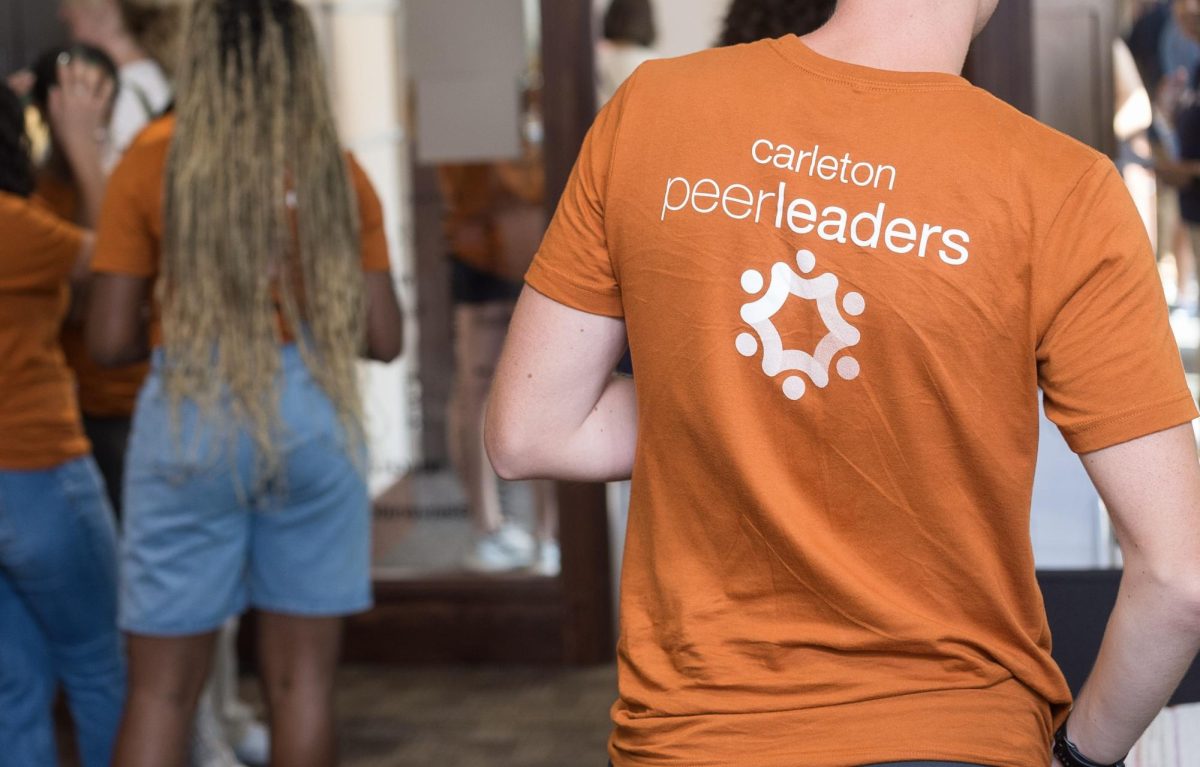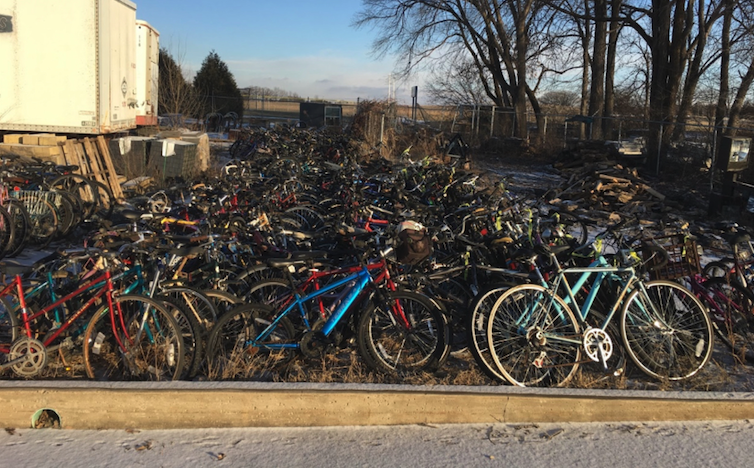On February 15, over $3,800 in funding was unanimously approved by the Carleton Student Association (CSA) for the Carleton Bike Cooperative—proposed by Jacyn Schmidt ’21 and Andrew Farias ’21 in partnership with the Sustainability Office and the Makerspace.
The funding comes from the Student Projects Committee, which Chair Polycarpe Bagereka ’22 said is used for projects that may not be associated with any chartered organization. He added, “We review every submitted project idea and when it is worth pursuing, we work collaboratively with the students and any appropriate parties to bring the project to fruition.”
With the Cooperative, students will be able to receive advice about their bikes or learn how to repair them for low to no cost at the mobile bike repair station—which can be set up outside Sayles or other locations for drop-ins. Students will also be able to purchase add-ons or safety equipment, like helmets and U-locks.
Construction of the actual bike station—which will be outfitted with a bike cargo trailer with a stand and integrated tool chest—will begin this spring. Instrument Project Manager Aaron Heidgerken-Greene, who manages the Makerspace, said he will work with students to create a final design and teach the skills necessary to build the station.
They will also establish a component list, and Heidgerken-Greene expects that “we’ll start with materials for light maintenance and repair, such as bar tape, lubricants and a variety of inner tubes.” On their budget sheet, Schmidt and Farias have also allotted for common larger replacements—such as chains and tires.
Students may be charged a small fee for parts used in repairs, but any instruction or tools used will be at no cost, which is similar to the model used by BicyCAL at the University of California Berkeley. Schmidt and Farias also hope to implement a sliding scale for students to get parts at no cost or a discounted price to alleviate financial burdens.
The Coop also plans to offer workshops to educate students on common fixes and introduce technical skills. “When I was a freshman, I did a workshop with an upperclassman who was really interested in teaching people how to fix their bikes,” Schmidt said. “And I’m really excited about that being something that’s very normal.”
Carleton has had three iterations of bike sharing and repair programs in recent history. The proposal highlights two internal programs that ended: the 1999 CSA-funded Yellow Bike Club (YBC) and the 2011 green-painted bike rentals started by Students Organized for the Protection of the Environment (SOPE) and maintained by the Student Activities Office (SAO). YBC bikes were repaired by students and reported serious injuries “due to break failures,” while the SOPE bike program was too much additional work on top of full-time SAO staff responsibilities.
The latest attempt with bike-sharing company Zagster in 2018—which was also funded by the Student Projects Committee—failed because the company wasn’t fulfilling their side of the contract, which Farias said “made us worry in terms of bike maintenance and liability in the long run.” It was also expensive, at $18,000 for 10 bikes.
For liability reasons, both Manager of Campus Energy and Sustainability Martha Larson and Heidgerken-Greene were clear that this program will train students to repair their own bikes instead of having others complete the repairs for them. Heidgerken-Greene said, “We will be focusing on training the owners of the bikes in routine maintenance, and hosting workshops and guides for more complex repairs.”
“That’s Jacyn and Andrew’s message here, is empowering students to know how to fix their own bike, empowering students to have transportation,” Larson added. “The more we empower people to fix their own stuff, the more it becomes doable, efficient from a time perspective and cheap to choose that instead of to choose ‘throw away and replace’ as a solution.”
Farias said, “There are risks and we want to manage them with the safety precautions, with workshops, with education, with training, with waivers and liability forms, and really doing our best because students are going to continue riding bikes regardless.”
“Bikes are one of the main ways that students get around on campus. And we just want to be able to help facilitate that safely and in a cooperative manner,” he added. Farias also encouraged students to register their bikes, which allows them to be easily contacted if their bike is stolen or moved for snow plowing.
Eventually, the Cooperative hopes to expand to fixing up and providing rentals to Carleton students using bikes in the space known as the bike “boneyard” or “graveyard”—which is located under the water tower by Farm House. Security and Grounds Services place bikes here when they have not been moved for a long time.
Assistant Director of Security Services and Emergency Management Blake Held said, “We tag bikes prior to clearing them from the racks. Facilities staff gathers the tagged bikes to the boneyard. This happens at the end of the academic year, occasionally during the academic year, and when special circumstances like construction projects dictate.”
In a regular year, there are anywhere between 300 to 450 bikes left behind on campus and placed in the “boneyard.” Schmidt and Farias mentioned that in previous years, some of these bikes were given to a local middle school teacher, to Food Recovery Network volunteers for transportation to the Community Action Center of Northfield, or to a metal recycler.
Farias said, “The problem is that all these bikes are just exposed to the elements, there’s no cover on top of them. So when it rains, they get rusted. When it snows, they get buried.” The majority end up as scrap metal, which amounts to around 12,600 lbs or 6.3 tons of bicycle-related waste for an entire year.”
“We’re definitely losing more bikes,” Farias continued. “They’re not being recycled back into campus. Most of these are being purchased or they’re being brought to campus.” When new students arrive in the fall, the whole cycle starts over again.
For now, Schmidt said, “the main purpose [of the Cooperative] is to help students keep their bikes in good running condition, and safe to ride, and to prevent bikes from going to the graveyard in the first place.”














